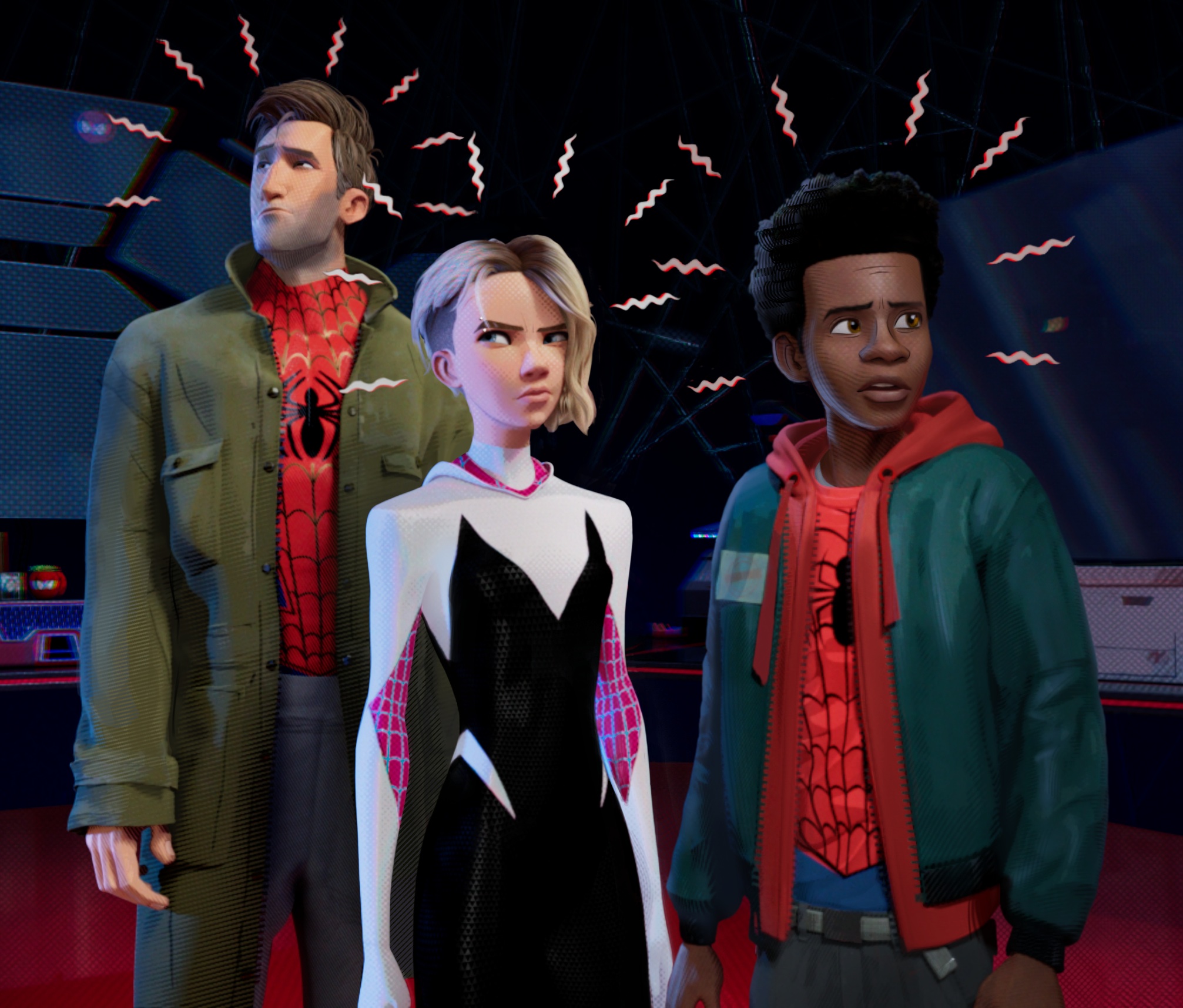While watching the new animated feature Spider-Man: Into the Spider-Verse – featuring Miles Morales’ big screen debut as the arachnid superhero – it’s reassuring to notice the subtle, yet transcendent details through which the creators ensured both parts of his cultural identity are present.
Miles (voiced by Shameik Moore), an Afro-Latino teen who lives in Brooklyn and first appeared in Marvel’s comics back in 2011, is the son of a Puerto Rican mother and an African-American father. The protagonist’s significance – when it comes to representation – cannot be overstated, making the fact that he and his mother (Rio Morales who’s voiced by Nuyorican actress Luna Lauren Velez) speak Spanish throughout the action-packed narrative truly momentous.
Although brief, the Spanish phrases and words we hear connote the genuine colloquialisms that arise in bilingual homes as opposed to the artificiality that sometimes peppers US-produced movies and feels like the result of lines being fed through Google Translate. It might come as a surprise for some that Phil Lord, known for writing and directing The Lego Movie and 21 Jump Street with his close collaborator Christopher Miller, was not only one of the main scribes and a producer on Spider-Verse, but also the person in charge of the Spanish-language dialogue.
“I grew up in a bilingual household in the bilingual city of Miami where you hear Spanish all over the place, and it’s not particularly remarkable,” he told Remezcla at the film’s premiere in Los Angeles. Lord’s mother is from Cuba and his father is from the States. As part of a Cuban-American family, the filmmaker empathized with Miles’ duality: “I certainly understand what it’s like to feel like you’re half one thing and half something else,” he noted.

Despite the massive success of Pixar’s Coco, including Spanish-language dialogue in a major studio’s animated release is still rare – doing so without adding subtitles, even for some of the longer lines, is outright daring. “It was important for us to hear Spanish and not necessarily have it subtitled,” said Lord. “It’s just part of the fabric of Miles’ community and family life.”
For Luna Lauren Velez, whose character speaks mostly in Spanish to Miles, Lord and the directors’ decision to not translate her text in any way helped validate the Latino experience on screen. “That was really bold, because if you use subtitles all of a sudden we are outside, and we are not part of this world anymore. It was brilliant that they just allowed for it to exist,” she told Remezcla. Her role as Rio Morales also benefited from the production’s adherence to specificity in the source material, she is not portrayed as just generically Latina but as a Puerto Rican woman from Brooklyn.
With the help of a dialect coach, Velez and Lord were also partially responsible for getting Shameik Moore (who has roots in Jamaica) to learn the handful of Spanish-language expressions Miles uses during the opening sequence were he walks around his neighborhood. “[Luna] has been getting on me! I need to go to Puerto Rico, and really learn Spanish for real,” Moore candidly told Remezcla on the red carpet.
Aside from Rio and Miles, the only other Spanish-speaking character is a villain named Scorpion. The insect-like bad guy who speaks only in Spanish is voiced by famed Mexican performer Joaquín Cosio. “He is an actor from Mexico City who was using slang that we had to look up because we didn’t understand it! I had never heard some of the words he used,” explained Lord.
For Lord, having different Spanish accents represented is one of the parts of Into the Spider-Verse he’s the most proud of. He wanted to make sure Miles and Rio didn’t sound alike to indicate how language changes through different generations. Being himself the child of a Cuban immigrant, the parallels were very direct. “Miles is second-generation, so he speaks different than his mother.”
Velez, who like Miles is born in New York, identifies with what it’s like to communicate in both tongues. “Growing my parents spoke to us in Spanish and we responded in English. Now this happens with my nieces and nephews,” she said. “You want to make sure kids remember their culture and where they come from.” In playing Rio, she thought of her mother who instilled in her not only the language but appreciation for her Latinidad.
Clearly, casting Velez was essential to upholding the diversity and authenticity embedded into Miles Morales’ heroic adventure since not doing so would have been a disservice to an iteration of an iconic figure that is so meaningful for many. “If Spider-Man’s Puerto Rican mom had been played by somebody who isn’t Latino I’d have a problem with that,” Velez stated emphatically.
Spider-Man: Into the Spider-Verse opens in theaters on December 14, 2018.







